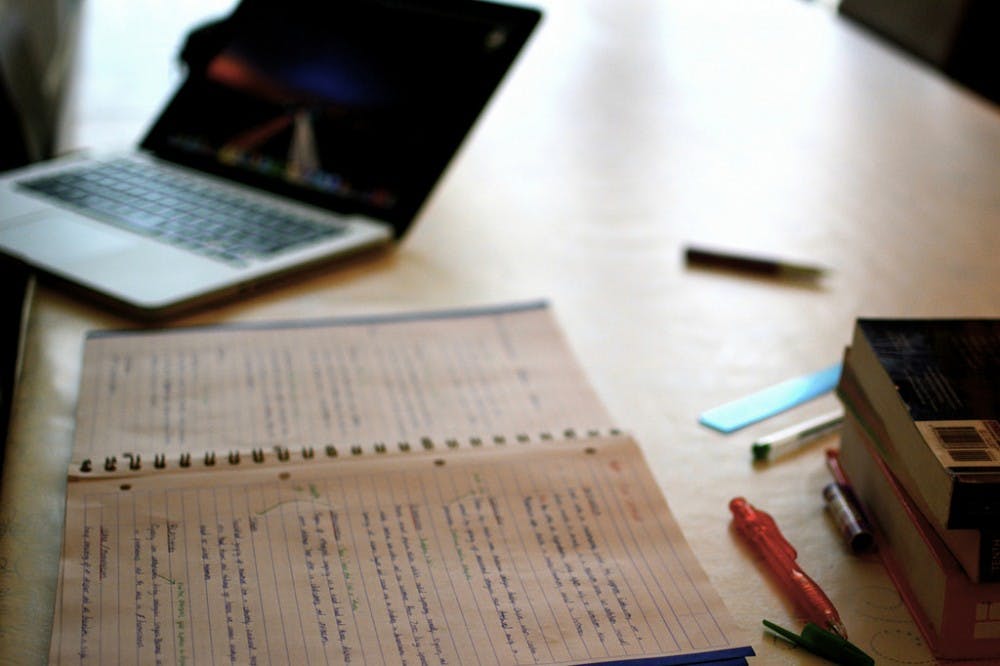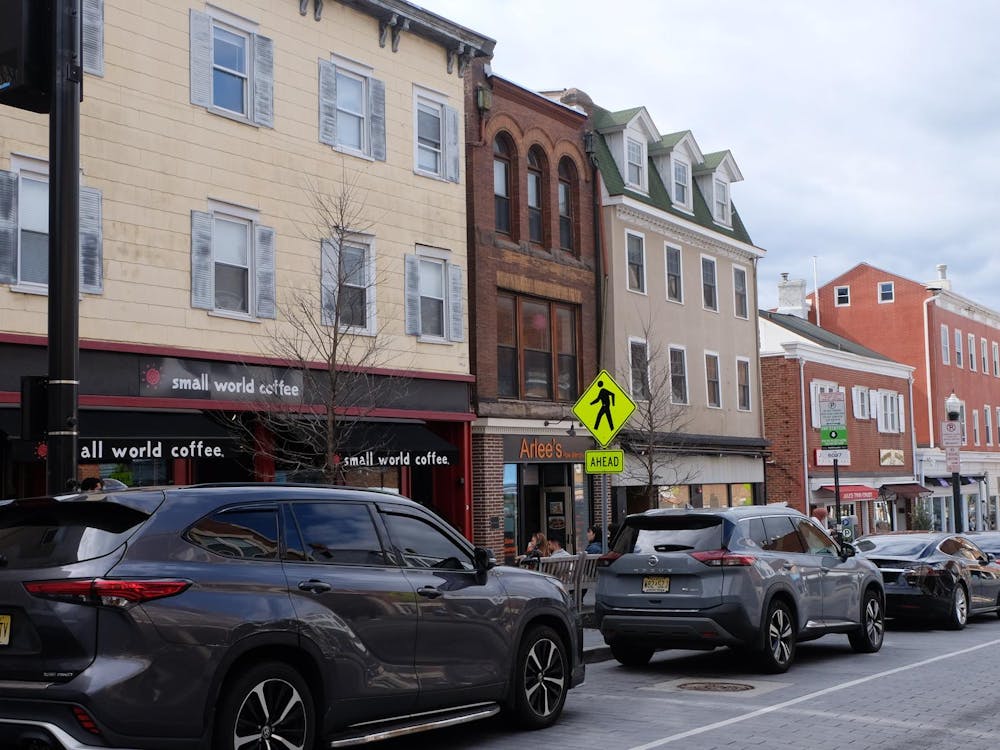Prior to coming to Princeton, I watched a Woke Wednesdays video in which an interviewee stated, “Princeton is the worst place in the world to be with your friends.” I was shocked and worried. I began to wonder if I had made the right choice of college, and I hoped that I would never know what the interviewee meant.
Inevitably, after almost four years at Princeton, I now know exactly what they meant.
My friends and I are varying degrees of overworked, stressed, sleep-deprived, and generally ill, which is standard for a Princeton student. (Having a thesis requirement makes standard Princeton exponentially worse, but that’s also still considered standard.)
Adding to standard pressures are the myriad social and political crises of our current moment, which include an ongoing pandemic and the prospect of mass death due to climate catastrophe and war. (Some of my friends check the COVID-19 Testing Statistics — a webpage with daily case counts that is discreetly hyperlinked on the COVID-19 dashboard — once a day. “Doomscrolling” — or miring oneself in negative news — is also an increasingly common practice at a societal scale.)
In short, everyone I know is miserable. Having experienced this academic year — and read Dean Dolan’s Feb. 18 email — I don’t think that Princeton cares about ensuring student well-being at all.
This isn’t a new claim, which makes the University’s continued indifference even more striking. As Hannah Reynolds wrote, “At Princeton, when you’re told it’s okay to not be okay, the implication is that it’s okay to not be okay, so long as your ‘not-okayness’ does not interfere with your work and productivity.” As PAA Johnatan Reiss wrote, “In one meeting, a student and I tried to create a schedule in which they would finish all their assignments. Even with minimal sleep and very few breaks, we calculated a week's worth of assignments would take a week and a half to complete.” Students have long been saying that Princeton’s toxic culture of constant productivity is driving them and/or their advisees to a breaking point.
In her Feb. 18 memo, Dean Dolan may as well have said, “We see you struggling, and we don’t care.” When immunocompromised students have to choose between their physical safety and attending class, when students attest to mental health crises due to an ongoing pandemic, when students are suffering on a broad-scale, an administrator responding with “don’t let your midterm work suffer” communicates complete and utter apathy.
The tonal pivot of the Feb. 27 email, in which Dolan acknowledged how “emotionally and logistically exhausting” the past few years have been “for us all,” seems to have been about performing solidarity. No tangible steps were taken to mitigate student workload. Furthermore, the end of COVID-19 mitigations was announced shortly after the Feb. 27 memo despite undergraduate cases reaching an all-time high in the same week.

I don’t know why the University has decided to abandon all efforts to mitigate the spread of COVID-19. I do know that motive has nothing to do with current students who are anxiously trying to avoid contracting the virus or being crushed by the stress of being held to impossible standards of productivity during multiple global and/or personal crises.
***
Should some Princeton administrator and/or spokesperson respond to this op-ed or any of the recent others expressing horror at the barefaced prioritization of “rigor” over students’ well-being, they will likely tout a few “solutions” that I want to respond to in advance. (This is efficient, as I will not have to use time that I should’ve spent studying for midterms writing a response piece.)
One: “CPS provides free counseling to all students.”

CPS is known to have long wait times, which is infeasible for students who are currently going through a crisis and is also unsustainable given the climb in caseload since the pandemic began. As many others have pointed out, the quality of care also varies substantially. Some people have positive experiences with CPS. My first year visits to CPS consisted of me sitting in a chair and being told that my situation was unfortunate. I already knew that my situation was unfortunate. If I overshared to a hallmate instead, I likely would have gotten a response of comparable depth.
CPS also lacks the ability to provide specialized care. I have friends who have faced obstacles when they went to CPS with concerns related to racism or sexual abuse. Student volunteers — such as SHARE peers — are only a band-aid to this problem, as they lack the training and expertise of a professional counselor.
Two: “Programs like the Mental Health Initiative show that Princeton prioritizes mental health.”
Many initiatives around mental health, like MHI, are organized by students. While such efforts are valuable, they are deeply limited in scope. They lack the power to impact the University’s culture of toxic productivity. They can only offer band-aid solutions, such as study breaks and free candy.
Three: “We continue to rely on your thoughtful, careful observation of current campus COVID rules. Moving toward loosening restrictions will depend on how you prioritize your health and the health of others.”
That’s another quote from the Feb. 18 memo. (Even for Princeton, this was a really gaslight-heavy email.) To paraphrase from a recent piece by Braden Flax, the idea that “personal responsibility” alone can combat the spike in cases is both scientifically dubious and deeply irresponsible on the University’s part.
By ending weekly testing and the indoor mask mandate, the administration has taken away structures that keep individuals safe on a broad-scale. Subsequently, even students who are incredibly cautious about COVID-19 and only do what is absolutely necessary — which, according to the University, is in-person classes — can still contract the virus.
This is because “prioritizing the health of others” isn’t part of Princeton’s culture. Even before the pandemic, the University failed to provide resources for students who missed class, which normalized students sacrificing their own health and the health of their classmates by attending class while sick.
When the University refuses to prioritize the health of its students, it encourages student apathy toward the health of their peers. Individual choices won’t mitigate the spread of COVID-19 because some people make choices with only themselves in mind.
Four: “You are here for academics.”
As a recent listserv email from Revolutionary Student Action stated, “The reigning mindset that Princeton can testify to is one of division and competition. We internalize individually both the goals and the costs of productivity: it is we who are failing, not the model — and we fail or succeed individually. It is no wonder that anxiety and depression have skyrocketed within recent years, and that any ‘more serious’ mental illness is merely retaliated against punitively.”
We are students, but that doesn’t mean we stop being human beings with needs and limits. The University should fund mental health services that can support students in crisis instead of forcing them out of the school. The University should take steps to mitigate COVID-19 instead of letting it run rampant just because, according to Dean Dolan, most students testing positive are “experiencing only mild symptoms.” (This is also foul coming from an administrator who gets to isolate themselves from the spread of COVID-19 among the student body altogether.)
I feel deeply disappointed and disillusioned by the University’s actions and rhetoric. Our collective well-being — by which I mean the mental and physical well-being of each and every one of us — shouldn’t be sacrificed for the sake of propping up an appearance of “normalcy” and sustaining a crushingly toxic culture of productivity.
Brittani Telfair is a senior from Richmond, Va. majoring in SPIA and pursuing a certificate in African American Studies. She can be reached at btelfair@princeton.edu or @brittanit10 on Twitter.








